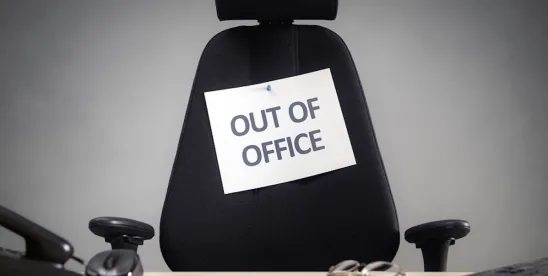With Election Day approaching, here is a timely reminder for employers in Minnesota, Iowa, South Dakota, and North Dakota regarding their obligations under these states’ laws to excuse employees from work to go to the polls. With many voters opting to vote early or by mail, the number of voters going to the polls in person on Election Day may be smaller than in the past, but here are the points employers need to know regarding the rules for voting in person on Election Day.
Quick Hits
- Employees in Minnesota are permitted time off to vote without loss of wages or incurring any penalty for their absences.
- Employees in Iowa and South Dakota receive two consecutive hours of paid voting leave if they do not have two consecutive hours outside their regular shifts to vote during polling hours.
- North Dakota employers are “encouraged,” but not required, to give employees time to vote if their work schedules conflict with polling hours.
Minnesota
On Election Day, November 5, 2024, Minnesota polling places will be open from 7:00 a.m. to 8:00 p.m. Under Minnesota Statute § 204C.04, employers are required to allow employees adequate time to vote in person at the polls without loss of wages or incurring any penalty for their absences.
Paid Time Off to Vote: Employees have the right to be absent from work to vote without any deductions from their wages, vacation time, or other forms of leave.
Adequate Time to Vote: Employers must provide the necessary time for employees to appear at the polling place, cast a ballot, and return to work.
No Assigned Time to Vote: Employees may be absent from work to vote at any time during the workday. The language that previously limited the right to take time off only in the morning of Election Day was removed from the statute in 2010.
Employee Notice: Employers may request that employees give notice of their intention to be absent and may make reasonable requests to stagger or schedule absences in order to maintain operations. Employers should use caution and common sense not to set conditions that could deprive an employee of the time necessary to get to the polls and vote.
No Interference With Voting Rights: Employers may not directly or indirectly refuse, abridge, or interfere with employees’ voting rights or any other election-related rights.
Penalties for Noncompliance: Employers that fail to comply with this law can be prosecuted by a county attorney and if found guilty can be punished for a misdemeanor.
Rights During Early Voting: Early voting is available for eighteen days leading up to Election Day. Employers and employees retain the aforementioned rights and obligations during this period as those voting on Election Day.
Iowa
Iowa polling places will be open from 7:00 a.m. to 8:00 p.m. Under Iowa Code § 49.109, employees may only receive two consecutive hours of paid leave if they do not have two consecutive hours outside their regular shift to vote during polling hours.
Employee Notice: Employees must individually request paid leave to vote in writing prior to the date of the election. The law does not specify how far in advance a request must be made.
Assigned Time to Vote: After a request for time off to vote, employers must assign the leave period allowing the employee two consecutive hours to vote.
Penalties for Noncompliance: Employers that fail to comply with this law are guilty of election misconduct in the fourth degree.
South Dakota
South Dakota polling places will be open from 7:00 a.m. to 7:00 p.m. Under South Dakota Codified Laws § 12-3-5, employees may only receive two consecutive hours of paid leave if they do not have two consecutive hours outside their regular shift to vote during polling hours.
Employee Notice: The law does not specify whether employees need to provide notice if they plan to take time off to vote on Election Day.
Assigned Time to Vote: Employers may assign the leave period allowing the employee two consecutive hours to vote.
Penalties for Noncompliance: An employer that refuses an employee the privilege conferred by this law or that subjects an employee to a penalty or reduction of wages because of the exercise of such privilege or that directly or indirectly violates this section is guilty of a Class 2 misdemeanor.
North Dakota
North Dakota polling hours vary by county. Under North Dakota Century Code § 16.1-01-02.1, employers are “encouraged,” but not required, to give employees time to vote if their work schedules conflict with polling hours. Employers are not required to pay employees for time off to vote.
Key Takeaways
Employers’ compliance with these laws is essential to ensure employees can effectively participate in the electoral process and to minimize disruption in operations on Election Day.






 />i
/>i

